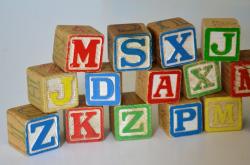Mastering Spelling: Teaching Spelling in Primary School
Introduction
In primary school, spelling is an essential skill that pupils need to develop. It not only helps them communicate effectively, but it also plays a crucial role in their overall literacy development. In this blog, we will explore some effective strategies for teaching spelling in primary school.
Spelling Strategies for Primary School
One of the key strategies for teaching spelling is phonics. Phonics focuses on the relationship between sounds and letters, helping pupils understand how words are formed. By teaching phonics rules and patterns, pupils can apply their knowledge to spell words accurately. 
Another strategy is to introduce sight words. Sight words are high-frequency words that pupils need to recognise and spell correctly. These words often do not follow regular phonics patterns and need to be memorised through repeated exposure and practice.
Mnemonics can also be used as a helpful spelling strategy. Mnemonics are memory aids that help pupils remember how to spell tricky words. For example, to remember how to spell 'because', the mnemonic 'Big Elephants Can Always Understand Small Elephants' can be used.
The Role of Technology in Spelling
In today's digital age, technology can play a significant role in teaching spelling. Spelling apps and online resources provide interactive and engaging activities for pupils to practice their spelling skills. These resources often include quizzes, games, and word-building exercises that make learning spelling fun and enjoyable.
Creating a Supportive Spelling Environment
 Creating a supportive spelling environment in the classroom is essential for helping pupils develop their spelling skills. Teachers can incorporate various activities and games to make spelling practice enjoyable. For example, word scavenger hunts, spelling bees, and spelling challenges can motivate pupils to actively participate in spelling tasks.
Creating a supportive spelling environment in the classroom is essential for helping pupils develop their spelling skills. Teachers can incorporate various activities and games to make spelling practice enjoyable. For example, word scavenger hunts, spelling bees, and spelling challenges can motivate pupils to actively participate in spelling tasks.
Teaching spelling in primary school is crucial for pupils' literacy development. By implementing effective strategies such as phonics, sight words, and mnemonics, pupils can become confident spellers. By prioritising spelling teaching, we can equip pupils with the necessary skills to become strong communicators.
Looking to Boost Literacy Skills in Your Class?
Read our blog: "The Power of Phonics: Boosting Literacy Skills in Key Stage One"
